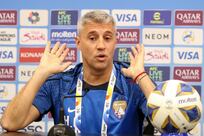The prime minister of Turkey, Israel's only ally in the Muslim world, today branded the Jewish state the "principal threat to peace" in the Middle East. The prime minister Recep Tayyip Erdogan's remarks at a breakfast meeting in Paris marked a new low in rapidly deteriorating relations between Israel and Turkey, which once had close military and political ties. "If a country uses disproportionate force in Palestine, in Gaza ? uses phosphorous shells ? we're not going to say 'bravo'," he declared, referring to Israel's January 2009 offensive against Hamas-controlled Gaza.
Operation Cast Lead, which was aimed at preventing rocket attacks by Gaza-based militants on civilian targets within Israel, left around 1,400 Palestinians dead and destroyed thousands of homes. Mr Erdogan said Israel's justification for the offensive was based on "lies" and cited a report by United Nations investigator Richard Goldstone, a South African judge who accused both Israel and Palestinians of war crimes.
"Goldstone is a Jew and his report is clear," the Turkish leader told reporters invited to meet him at the Paris Ritz. "It's not because we are Muslims that we take this position. Our position is humanitarian. "It's Israel that is the principal threat to regional peace." Mr Erdogan was speaking in Turkish, through a French interpreter. Turkey is the only country in its immediate region to enjoy open military ties with Israel and has been a rare friend in the Muslim world, despite strong sympathy for the Palestinians among the Turkish public.
But ties have suffered since the Gaza offensive, which Turkey condemned. The situation has been further inflamed by political and ideological tensions between Mr Erdogan's government, led by the Islamist-rooted AKP party, and Israeli prime minister Benjamin Netanyahu's right-wing coalition. On Tuesday, Ankara condemned remarks attributed to Israeli Foreign Minister Avigdor Lieberman that likened Mr Erdogan to controversial pro-Palestinian leaders Moamer Kadhafi of Libya and Venezuela's Hugo Chavez.
Israeli website Ynet had reported that Mr Lieberman told it on Monday evening that Mr Erdogan is "slowly turning into Kadhafi or Hugo Chavez" and added: "It's his choice. The problem is not Turkey, the problem is Erdogan." A Turkish foreign ministry statement said: "We vehemently condemn and reject the baseless, deplorable and over-the-top statements ... by Avigdor Lieberman carried on Israeli media about our prime minister."
This spat followed tensions caused when Israel's deputy foreign minister Danny Ayalon gave Turkey's ambassador a public dressing down in January to protest a Turkish television series that criticised Israel. After having kept Oguz Celikkol waiting, the envoy was made to sit on a low couch and the Turkish flag was removed from their table. Mr Ayalon had pictures taken of the humiliating scene, infuriating Ankara.
Mr Ayalon later apologised, but, judging by Mr Erdogan's remarks in Paris, relations remain strained almost to breaking point and the row could hurt attempts to build international support for sanctions against Iran. Turkey is currently a member of the United Nations Security Council, which will soon have to decide whether to follow French and US pressure to impose tougher penalties on Tehran in protest at its nuclear programme.
Mr Erdogan pointed the finger at Israel's own undeclared stock of nuclear warheads, arguing that the fact that it had not signed the non-proliferation treaty (NPT) should not exempt it from international safeguards. "Is this situation logical?" he demanded today in Paris. "Should not being a member of the NPT mean you can do whatever you like every day?" He repeated his opposition to sanctions against Iran, which Western capitals accuse of operating a secret nuclear weapons programme, insisting the UN nuclear watchdog the IAEA has found no hard proof of Tehran cheating.
* AP




